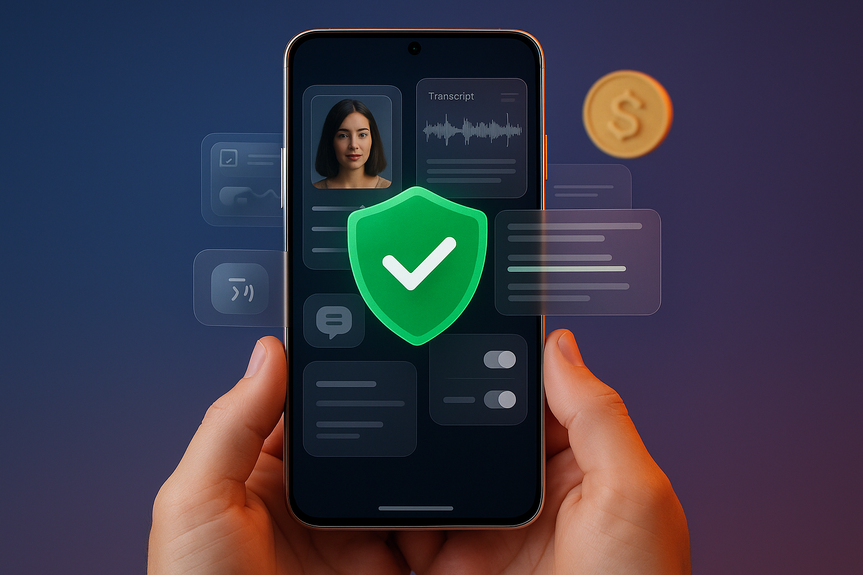
AI News
21 Nov 2024
Read 5 min
AI Tools in Hiring: Key Recommendations for Recruiters to Succeed
AI hiring tools boost efficiency and cut bias, but smart strategies are key for recruiters to excel
Artificial intelligence (AI) is reshaping the way companies hire talent. AI-powered tools can improve hiring processes by saving time, reducing bias, and enhancing decision-making. However, using AI in recruitment also comes with challenges. Recruiters need specific strategies to maximize AI’s benefits and avoid potential downsides. Below, we will discuss how AI tools are transforming hiring processes and share key recommendations for recruiters to achieve success.
Understanding the Role of AI in Hiring
AI tools help recruiters in various stages of hiring. These include sourcing candidates, screening resumes, and conducting initial interviews. These tools rely on algorithms to process data and produce insights. Here are the main ways AI tools are used in hiring:
- AI-based tools screen large numbers of applications quickly.
- They identify keywords and match candidate profiles to job descriptions.
- Chatbots and automated platforms answer candidate queries in real time.
- Predictive analytics assess the potential success of candidates in specific roles.
While AI has streamlined hiring, recruiters must remain cautious and use these tools responsibly to ensure fairness.
Benefits of Using AI Tools in Recruitment
AI tools offer many advantages for recruiters. Here are some of the top benefits:
- Improved efficiency: AI speeds up repetitive tasks like resume screening and scheduling interviews.
- Data-driven decisions: AI analyzes large datasets to identify top candidates based on objective criteria.
- Cost savings: Companies save time and money by automating certain parts of the hiring process.
- Enhanced candidate experience: Chatbots and automated tools engage candidates quickly, minimizing delays and improving communication.
Using AI can make the hiring process faster and more consistent if implemented appropriately.
Challenges Associated With AI in Hiring
Despite its benefits, recruiters must approach AI tools with care. There are challenges associated with using these tools, such as:
- Bias in algorithms: AI systems can inherit unconscious biases from the data they are trained on.
- Data privacy concerns: Collecting and processing candidate data raises questions about security and compliance.
- Lack of transparency: Some candidates may feel uneasy about how AI algorithms make decisions.
- Over-reliance on AI: Using AI exclusively may overlook human qualities that are harder to measure, like emotional intelligence.
To fully benefit from AI tools, recruiters must address these concerns effectively.
Recommendations for Mitigating These Challenges
Recruiters can navigate challenges by following some key strategies:
- Ensure AI tools are trained on diverse data to reduce biases.
- Work with vendors who prioritize transparency in their AI models.
- Stay informed about data protection laws to ensure compliance.
- Combine AI insights with human decision-making rather than depending on AI alone.
These solutions help recruiters use AI responsibly while maintaining fairness.
Key Recommendations for Recruiters to Succeed with AI
To make the most of AI tools, recruiters should follow these practical recommendations:
1. Choose the Right AI Tools
Not all AI tools are created equal. Recruiters should select tools that fit their company’s specific needs. Examples include applicant tracking systems (ATS), virtual interview platforms, or predictive analytics tools. Research and compare options before making a decision.
2. Train Your Team
AI systems work best when users understand them. Train your team to use AI tools effectively. Make sure recruiters know how to interpret the results and when to incorporate their own judgment.
3. Monitor for Bias
Bias is one of the biggest risks in AI-based hiring. Regularly review your AI systems for signs of bias. For example, check whether certain groups of candidates are being overlooked due to irrelevant criteria.
4. Maintain Human Oversight
AI tools should assist, not replace, human judgment. Use AI as a guide, but retain final decisions for human recruiters. This ensures a balanced approach.
5. Prioritize Communication
AI tools, such as chatbots, improve communication with candidates. Make sure your tools provide clear and accurate answers to candidates’ questions. This helps improve the candidate experience and maintains trust.
6. Stay Updated
AI technology evolves rapidly. Keep up with the latest trends and updates in AI hiring tools. Staying informed ensures you use tools that align with best practices.
Final Thoughts
AI is transforming recruitment by making processes faster and more efficient. However, its use requires thoughtful implementation. Recruiters must address challenges like bias and lack of transparency while prioritizing human oversight. By choosing the right tools, training teams, and monitoring for bias, recruiters can leverage AI effectively. Following these recommendations will help ensure a positive hiring experience for both recruiters and candidates.
For more news: Click Here
“`
Contents






